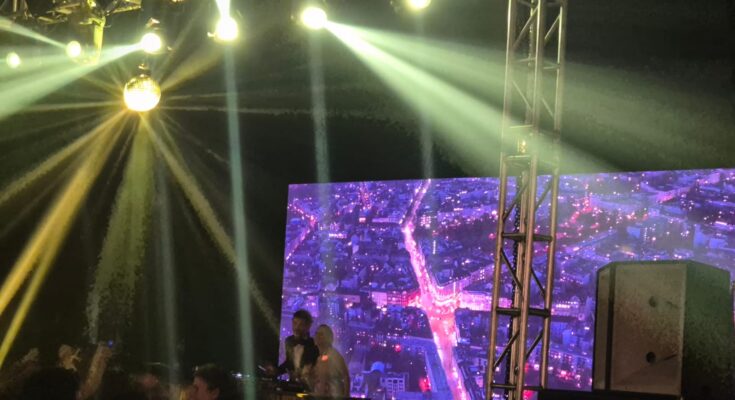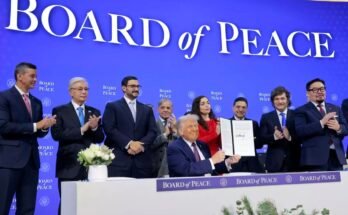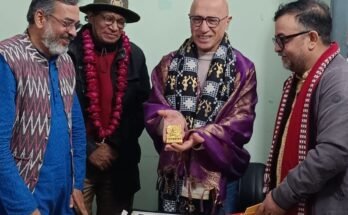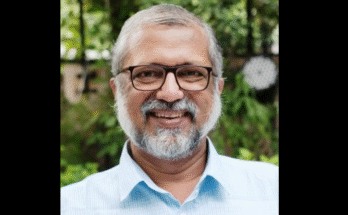The Day of German Unity, celebrated on October 3, marks the reunification of East and West Germany in 1990—a historic event that ended decades of division and symbolized hope for a future rooted in harmony and collaboration.
This year, on November 13, 2024, the German Embassy in New Delhi hosted an extraordinary celebration to mark the occasion, bringing together diplomats, leaders, and friends of Germany. The event served as a profound testament to the strength of Indo-German relations and the shared commitment of both nations to advancing global peace and fostering cooperation on key international challenges.
As someone deeply committed to fostering understanding and partnerships, attending this celebration with my life partner, Shruti Nagvanshi, was an inspiring experience. The event not only provided an opportunity to participate in this important occasion but also reinforced the significance of people-to-people connections in strengthening ties between nations.
Setting the Tone: The Opening Ceremony
The evening began with the soulful renditions of the national anthems of Germany and India. This symbolic gesture emphasized the deep cultural and diplomatic ties between the two countries. The anthems, performed with grace and reverence, set a solemn yet celebratory tone for the evening, reminding attendees of the importance of mutual respect and shared values.
German Ambassador to India, His Excellency Dr. Philipp Ackermann, warmly welcomed the guests and engaged with them personally, exemplifying the spirit of friendship and diplomacy. When Shruti and I had the privilege of meeting Ambassador Ackermann, the interaction was both memorable and heartfelt. Upon learning that I hailed from Varanasi, he responded with genuine curiosity, “Are you from Varanasi?” to which I replied, “Yes.” This brief exchange highlighted the Ambassador’s openness and keen interest in understanding the diverse backgrounds of those in attendance.
Reconnecting with Friends and Colleagues
The evening offered a unique opportunity for reunions and meaningful conversations. One of the highlights for me was meeting Frank Hoffmann, a former intern at the People’s Vigilance Committee on Human Rights (PVCHR) and now a dear friend. As we reminisced about our shared journey, I was reminded of the enduring bonds that human rights advocacy fosters across borders. These connections not only enrich our personal lives but also strengthen our collective efforts to create a more just and equitable world.
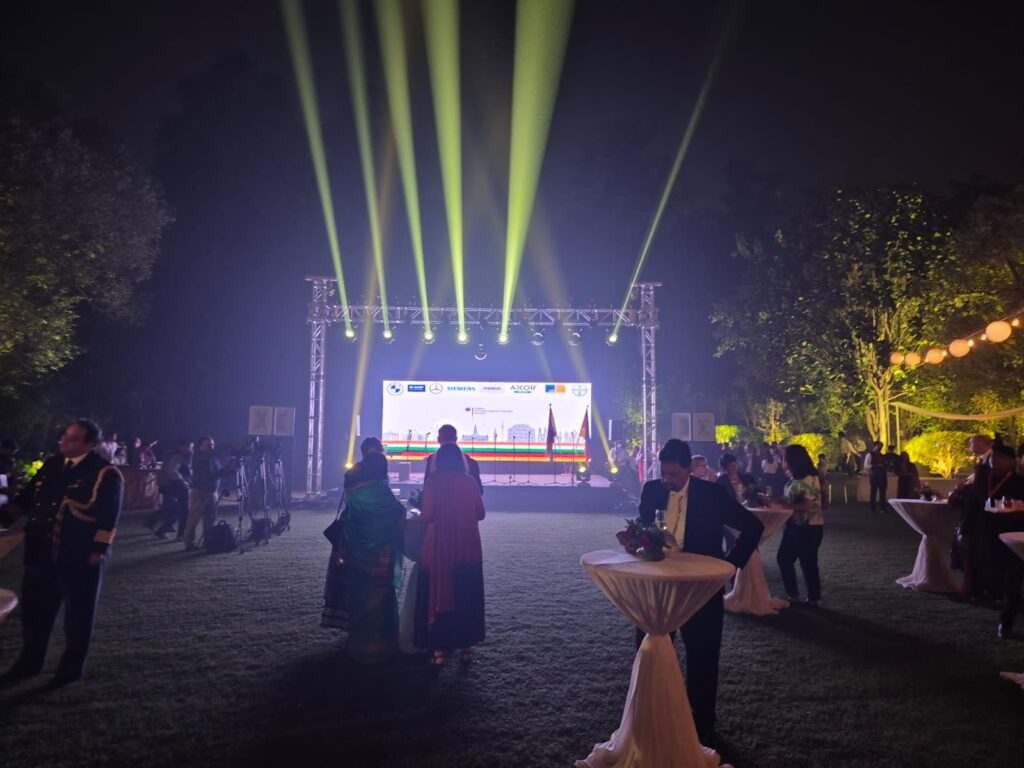
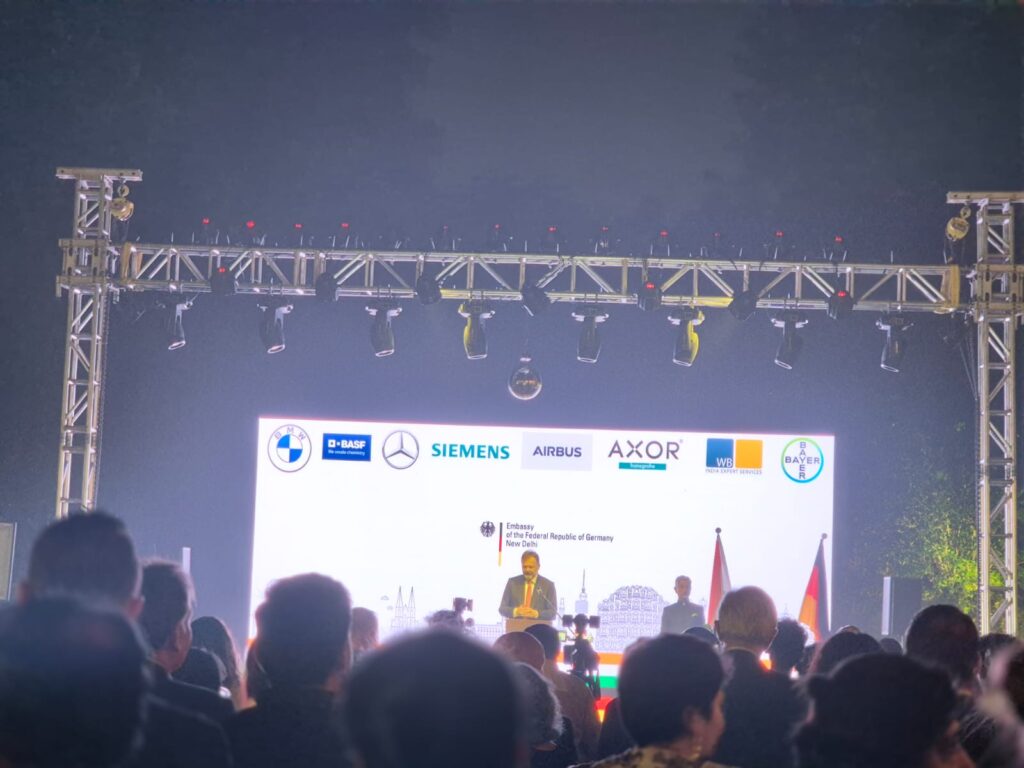
Amid these joyful interactions, the evening served as a poignant reminder of the challenges Shruti and I have faced in recent times, both personally and professionally. The celebration became a beacon of hope and solidarity, underscoring the importance of resilience and the power of community in navigating life’s trials.
Indo-German Relations: A Partnership Built on Trust and Shared Goals
The Day of German Unity is not just a celebration of Germany’s reunification; it also offers an opportunity to reflect on the robust partnership between India and Germany. This relationship, built on a foundation of trust and mutual respect, spans multiple domains, including trade, technology, education, and cultural exchange.
Germany is India’s largest trading partner in the European Union and one of its most significant sources of foreign direct investment (FDI). The two nations share a vibrant economic relationship, with bilateral trade crossing €24 billion in 2023. German companies like Siemens, Bosch, and Bayer have a significant presence in India, contributing to its industrial growth and innovation. Likewise, Indian businesses, including TCS, Infosys, and Mahindra & Mahindra, have established themselves in Germany, highlighting the complementary strengths of the two economies.
Education and cultural exchange are another cornerstone of Indo-German relations. Over 34,000 Indian students are currently enrolled in German universities, attracted by Germany’s high-quality education and its emphasis on research and innovation. Initiatives like the Indo-German Science and Technology Centre (IGSTC) facilitate joint research projects, fostering collaboration in cutting-edge fields such as artificial intelligence, renewable energy, and biotechnology.
Helmut Kohl’s Legacy and Angela Merkel’s Vision
The legacy of Helmut Kohl, often called the architect of German reunification, continues to inspire the world. His leadership during the reunification process set the stage for a united Germany to emerge as a global leader in diplomacy and innovation. Kohl’s vision also laid the groundwork for Germany’s engagement with countries like India, recognizing the potential for partnerships that transcend geographical and cultural boundaries.
Angela Merkel, Germany’s longest-serving Chancellor, further deepened Indo-German ties during her tenure. Her visits to India, including the landmark 2019 trip, showcased Germany’s commitment to fostering a strategic partnership with India. During that visit, Merkel and Indian Prime Minister Narendra Modi co-chaired the Indo-German Intergovernmental Consultations, which focused on climate change, sustainable development, and economic collaboration. Merkel’s emphasis on renewable energy and environmental sustainability resonated deeply with India’s own goals, leading to joint initiatives in solar energy, green technology, and urban development.
Cultural Diplomacy: A Celebration of Unity in Diversity
The evening’s festivities at the German Embassy were a vivid reflection of the rich cultural exchange between Germany and India. Guests enjoyed an array of traditional German delicacies paired with exquisite beverages, providing a culinary journey that celebrated Germany’s diverse heritage.

Cultural performances further enriched the event, blending traditional and contemporary art forms to create a vibrant atmosphere. These performances highlighted the shared appreciation for creativity and innovation that binds the two nations. The embassy staff, with their meticulous planning and warm hospitality, ensured that every guest felt welcomed and valued.
A Testament to Resilience and Hope
For Shruti and me, this celebration came at a time of personal and professional challenges. As human rights advocates, our work often involves confronting systemic inequities and advocating for marginalized communities—tasks that are both rewarding and demanding. Amid these trials, the German Embassy’s National Unity Day celebration served as a reminder of the importance of resilience, the support of friends and allies, and the enduring power of hope.
The presence of India’s External Affairs Minister, Dr. S. Jaishankar, as the chief guest further underscored the event’s significance. His address highlighted the shared commitment of India and Germany to upholding democratic values, fostering peace, and addressing global challenges through multilateral cooperation.
Looking Ahead: Strengthening Ties for a Shared Future
As we move forward, the partnership between India and Germany continues to hold immense promise, encompassing areas critical to both nations and the world at large. Committed to tackling pressing global challenges such as climate change, sustainable development, and digital transformation, India and Germany have embarked on numerous collaborative ventures. Among these, the Indo-German Green Hydrogen Task Force, established in 2022, stands out as a landmark initiative aimed at fostering a sustainable energy future through the promotion and adoption of green hydrogen technologies.
Education and cultural exchange also form a cornerstone of Indo-German relations. Programs like the German Academic Exchange Service (DAAD) and scholarships under the New Passage to India initiative enable countless Indian students to pursue higher education in Germany, nurturing cross-cultural understanding and paving the way for innovation and collaboration across diverse fields.
The visit of H.E. Olaf Scholz, Chancellor of the Federal Republic of Germany, to India for the 7th Intergovernmental Consultations (IGC) from October 24–26, 2024, further underscored the robust relationship between the two nations. This visit, at the invitation of Prime Minister Shri Narendra Modi, marked a significant milestone in Indo-German relations. During the consultations, both leaders co-chaired discussions alongside senior ministers from their respective cabinets, addressing key areas such as enhanced security and defense cooperation, mobility of talent, economic ties, and emerging technologies. This comprehensive, whole-of-government dialogue reflected the maturity and depth of the bilateral relationship.
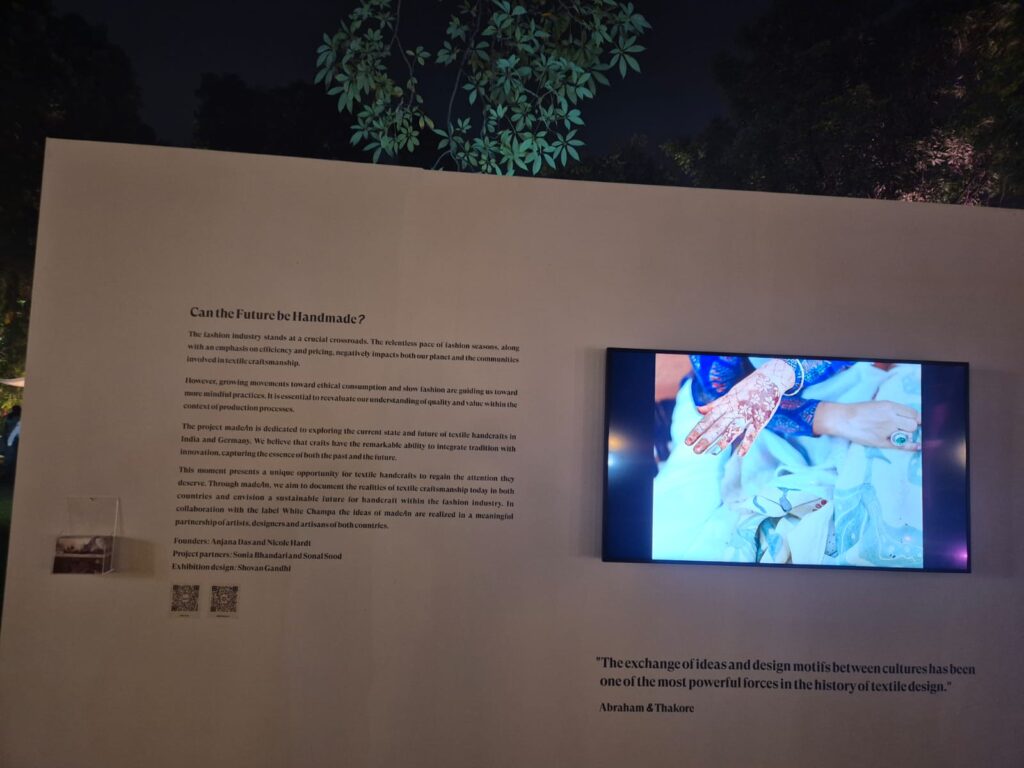
Chancellor Scholz’s engagement extended beyond formal talks. On October 25, he joined Prime Minister Modi in addressing the 18th Asia-Pacific Conference of German Business (APK 2024) in New Delhi. This prestigious biennial gathering, attended by around 650 business leaders and CEOs from Germany, India, and other Indo-Pacific nations, emphasized the growing trade and investment linkages between India and Germany. It provided a valuable platform for fostering economic ties and exploring new business opportunities.
Highlighting the evolving strategic dimension of the partnership, Chancellor Scholz also traveled to Goa, where the German naval frigate Baden-Wuerttemberg and the combat support ship Frankfurt am Main made a scheduled port call as part of Germany’s Indo-Pacific deployment. This naval engagement signaled a shared commitment to maintaining peace and stability in the Indo-Pacific region.
The strategic partnership between India and Germany, established in 2000, has steadily deepened and diversified across various sectors over the past two decades. As the two nations celebrate 50 years of collaboration in science and technology and enter the 25th year of their strategic partnership, Chancellor Scholz’s visit served to further consolidate ties, fostering progress in key areas and reaffirming a shared vision for a future rooted in cooperation and mutual respect.
Together, India and Germany exemplify the potential of international collaboration to address global challenges, promote innovation, and strengthen the bonds of friendship and unity between diverse nations.
A Celebration of Unity and Collaboration
The German Embassy’s National Unity Day celebration was much more than an event—it was a vibrant tapestry of cultural exchange, meaningful conversations, and shared aspirations. It celebrated not just Germany’s reunification but also the enduring friendship between India and Germany, rooted in shared values and a commitment to global progress.
As Shruti and I reflected on the evening, we were filled with gratitude for the opportunity to participate in such a meaningful celebration. It was a reminder of the power of unity, the importance of fostering connections, and the resilience required to navigate life’s challenges. Our heartfelt thanks go to Ambassador Dr. Philipp Ackermann and his exceptional team for organizing an unforgettable evening. The celebration not only honored Germany’s past but also illuminated the path toward a future of greater cooperation, understanding, and unity.

